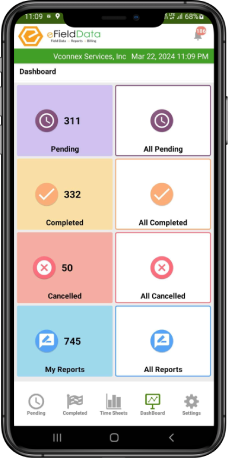Elevate Your Operations: CMT Workflow Automation Strategies for Success
March 22, 2024
In today's dynamic construction materials testing field, staying competitive and delivering high-quality projects on time and within budget requires embracing digital solutions. For geotechnical engineering firms providing construction materials testing and inspection services, adopting workflow automation software is crucial for streamlining operating processes and improving productivity. However, successfully implementing such software, particularly cloud-based solutions, requires careful planning and execution. Here are the crucial steps for engineering firms to ensure a smooth implementation of cloud-based construction materials testing software:
1. Identify Requirements and Define Objectives
Before selecting a workflow automation software, evaluate your existing process to identify bottlenecks and pain points. Next, determine specific tasks that could be automated. It is important to get buy-in from staff across the firm by engaging them right from the beginning to gather information and clearly define implementation objectives and requirements.
2. Select the Right Software
Research and identify the right construction materials testing workflow automation software that meets your requirements and budget. Begin by asking for industry references or searching online to come up with a short-list of Software as a Service (SaaS) vendors that you would like to evaluate. Make time to evaluate the short-listed vendors in terms of features and scalability. Request a Demos and trial periods for further evaluation, ensuring the software facilitates seamless flow from scheduling to field to lab and back to the office for reviewing and distributing reports to clients. While cost is an important factor, additional factors such as intuitive user interface, customer support, and vendor reputation are also important for a successful implementation. Select a provider that offers the best fit solution that meets your unique requirements for construction materials testing and inspection services.
3. Plan for Implementation and Data Migration
Once you have chosen the workflow automation software, determine additional resources that you may need including mobile devices, and schedule your implementation. If possible, try to schedule it during periods of lower construction activities. Work with you vendor to plan for a smooth migration of you existing client and project data. Coordinate with your construction materials team to select which projects you would like to start with on the new system.
4. Training and Fine-tuning Existing Process
As you automated your workflow process, review with your team on whether you need to make any changes at each stage from scheduling to field data collection to lab data entry to reviewing reports and distributing reports to clients. Provide sufficient training for your staff on how to use the new software effectively. If needed, work with your vendor to address any issues or provide additional training as needed.
5. Gather Feedback and Monitor Performance
Once training and implementation are completed, evaluate the impact on operations. Identify key metrics such as productivity gains, cost savings, and customer satisfaction levels. Gather feedback from staff and clients to determine what is working well and to identify areas for improvement.
6. Keep Up-to-Date on New Features
Stay informed about updates and new features introduced by your vendor to maximize the benefits of your workflow automation software. Empower your staff to propose new ideas to leverage your workflow automation software. Have a process in place to continuously enhance digital literacy and proficiency with the software for new employees.
In conclusion, successful implementation of workflow automation software for constructions materials testing and inspections services, particularly in a SaaS environment, requires careful planning, teamwork, and ongoing commitment to keep up-to-date with the software. By following these steps, engineering firms can achieve new levels of efficiency, accuracy, and client satisfaction in their construction materials testing and inspection processes.
eFieldData, a cloud-based construction materials testing software for workflow automation gives you all the above benefits at an affordable price. Request a demo to learn more about eFieldData
